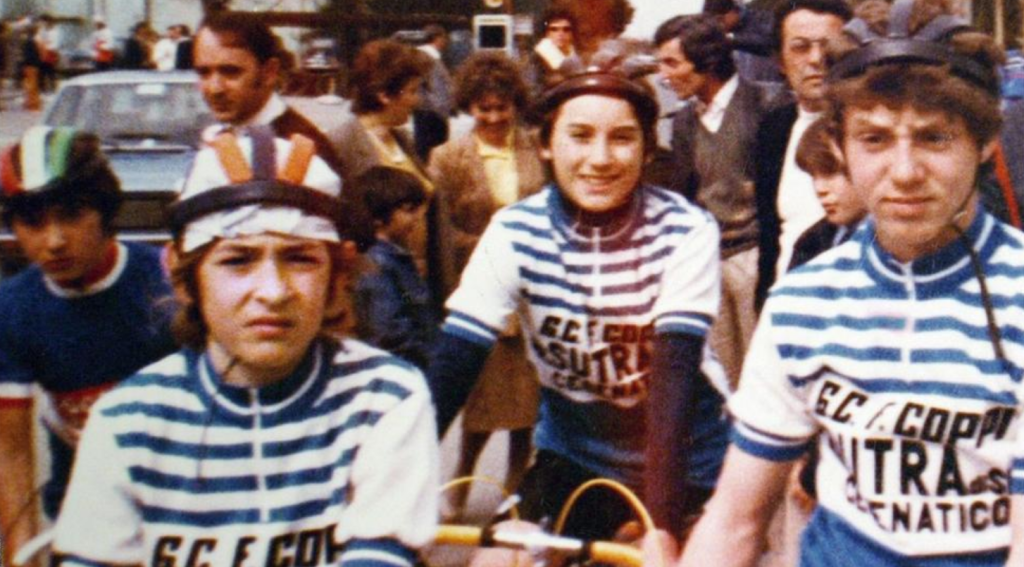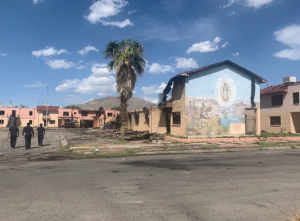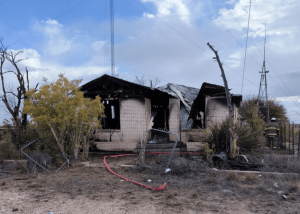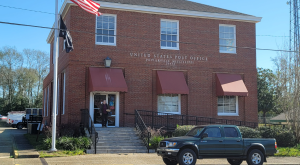
By Drew Savage
Valentine’s Day is Saturday, February 14, 2004. Marco Pantani, alone in his room 5D in Rimini’s Residence Le Rose Hotel in Italy has been behaving strangely ever since he arrived out of season Monday.
Pantani was in his prime when Lance Armstrong won his first Tour de France at the age of 34. He had been a winner for the past four Tours de France. Pantani, who has earned the nickname “Il Pirata” for his bandana and earring, is in the limelight for over three years.
In his prime, he embodied the swashbuckling hero of professional cycling. He fought against Armstrong’s dominance, and his own declining power. In 2000, the American was beaten by him to win an entire stage at Courchevel. It is the most-watched cycling event in Italian TV history.
Pantani, in the morning, calls the reception desk three times to complain about the people who are staying in the empty room adjacent. He calls the police just after 11 am.
Panani was a great climber because of his small, skinny build, sharp cheekbones and strong lungs. He won both the Giro d’Italia in 1998 and the Tour de France due to his unique ability to breathe thin mountain air. Only six riders had achieved this feat. His name is etched in the pantheon alongside Fausto Coppi and Eddy Merckx.
Pantini’s image was tarnished in 2004. He had gained weight and was now 20 kg over his race weight.
The Giro d’Italia was won by a man who led it for more than 5 minutes, with only two stages remaining.
Italian police escorted him out of his team’s hotel after he failed a blood-test the morning before the penultimate race.
Pantani was cheered by his teammates from the balcony of their hotel. The protestors blocked traffic.
Pantani stated at that time: “We have reached the lowest morale levels after two major accidents. “.
Pantani was in Rimini at this road fork. Pantani’s world had been plunged into darkness from which he couldn’t escape.
The receptionist, after speaking with the owner of the hotel, goes into Room 5D that night under the pretense of bringing in fresh towels. The receptionist knocks on the door but gets no response. The receptionist knocks again after a second conversation with her boss. He opens the door using his master key, and after removing the barricade of furniture, discovers Marco Pantani’s body on the upper level.
Pantani’s legacy is one of glory but there are questions as not all people admired him. Others may even have wanted him to die.
Marco Pantani, originally from Cesenatico (14 miles north of Rimini on the Adriatic Coast), was born into a working class family.
As a child, a neighbor encouraged him to join a local cycling club. He became one of sport’s best climbers.
Pantani, compared to the likes of Miguel Indurain, Jan Ullrich and others who had been dominating in their time trial, was a breath fresher. The sport’s romantic supporters referred to them as “winning machines” – hard to beat but even harder to love.
Pantani is the climber that leaves his competitors gasping in the mountains.
Pantani was unique. Pantani was different. He didn’t use a helmet or eat Nutella.
Matt Rendell is Pantani’s cycling journalist biographer. During the BBC Sounds film Pantani: The Death of a Pirate he said Pantani would have liked to paint with his bike.
Pantani was a huge success. But not only because of his winning style. Pantani’s panache and his distinctive style of riding up the mountains with his hands resting on the drop bars. The way he flew past the others, without even breaking a sweat. He rode with all his heart – whether it was glory or death.
After winning a critical 1998 Giro Stage at Montecampione, he explained, as far as it went, his “all-in” race strategy.
“I had no alternative. “I had no alternative. I had no alternative. “I had no alternative. He said.
During the 1994 Tour de France he broke the record for fastest ascent up Alpe d’Huez, which is a 21-hairpin climb that’s almost mythical.
The three trips up Alpe d’Huez by him have not been surpassed in the Tour de France. He broke the record again in 1995. He came four seconds short of breaking his record in 1997.
He achieved the crowning glory one year later.
A Festina team official was caught carrying performance-enhancing drugs during the 1998 Tour, and the team was expelled, riders arrested, and the peloton went on strike.
The yellow jacket of the defending champion Ullrich signaled that the race was lacking a hero. Enter Pantani. He was three minutes behind Ullrich.
Pantani won the race in an Alps day that was cold and wet.
Pantani gained three minutes on Ullrich as he flew down to the bottom of the Galibier, taking risk after risk in what had to have seemed like an apocalyptic storm. Pantani slipped on the last climb and Ullrich followed in his footsteps.
During live TV coverage, Pantani was seen storming out of the fog and up to Les Deux Alpes before reaching the finish. At the 15th stage, Pantani had gained nine minutes over Ullrich whose calculations were disastrous.
Pantani gambled that he would be wearing the yellow shirt all the way up to Paris.
Pantani was at his peak in 1998, when he won the most stages. Ten months later, he lost the 1999 Giro, despite dominating the race with only two remaining stages.
The Pirate’s coronation was denied to the Pirate’s fans and the Italian peloton. The absence of reliable tests for Erythropoietin, a banned blood-boosting substance, meant that riders were subject to a haematocrit cap of 50% because their haematocrit was two percentage points above the limit.
Those who fail the test accept their suspensions and serve their sentences as occupational hazards. They then resume their careers. Some, like David Millar from Scotland, have become advocates of clean cycling.
Pantani’s temporary suspension from racing was due to his failing of a “health check”. It marked the start of the end.
According to his close friends, he began using cocaine regularly at that time.
Indurain’s summary of the five years following Pantani’s death, 2004
He could not get over the haematocrit test. It complicated his life. “He was never the same again after the haematocrit tests.”
Pantani, who was popular with many, was also involved in disputes, both with cycling’s national governing bodies, and with the Italian government. He became paranoid and convinced that the sport was unfairly being targeted.
Pantani received treatment at a drug and depression clinic and told his fans in October 2003 to forget him.
Pantani wrote in his passport when he was on vacation in Cuba.
He said, “I’m no longer the same champion that I used to be.” “.
It’s not because they love me but rather that they need a persona.
For nothing, I’ve been embarrassed. Since four years ago, I’ve been in every court. “Yes, there are rules – but they apply to everyone.”
Four months after his words were made public, his hotel room passport was found.
Tonina, at his funeral, screamed: “You are all responsible for the death of my son.” What’s your purpose here ?”?”
More than 20,000 people lined Cesenatico’s streets as his coffin left the church.
Pantani’s death has been ruled as an accident cocaine overdose. However, this isn’t the end of it.
In 2016, a second investigation was opened after Pantani’s relatives claimed that he had allegedly been murdered and beaten up by men. In 2016, a second inquiry was launched after Pantani’s family claimed he had been beaten by a group of men, forced to drink cocaine and murdered.
The Italian authorities announced in November 2021 that they would be conducting a third investigation on Pantani’s death and disqualification at the 1999 Giro. They will focus their attention on the mafia’s involvement.
The investigation was started by a new piece of information that had been discovered almost accidentally.
According to Lorenzo Bodrero, investigative journalist in Pantani Death of a Pirate (which was unrelated to Pantani’s 2016 case), one of the men in the conversation brought up the Camorra, the Naples Mafia, as a possible suspect in Pantani’s death.
Since years there has been reports that the mafia was involved in Pantani’s death due to the amount of money they would have lost if he had won the 1999 Giro.
The police had found evidence which seemed to confirm their theory.
Fabio Miradossa also appeared in court. He was a drug dealer who provided Pantani drugs near the end of Pantani’s life.
Bodrero claims that this man was the person who sold cocaine to him.
Miradossa said that Pantani used cocaine but “not to an extent where he would die in a matter of days.”
Pantani failed his blood test in 1999, according to a well-known criminal who claimed that mafia connections had foretold the result.
They allegedly advise: “Bet against Pantani, if you’ve got money. He won’t make it to Milan.”
Matt Rendell has been Pantani’s Biographer for many years and has never believed in the mafia stories.
He told BBC Sounds that the Camorra does not try to solve a problem by contacting the Haematology Department of a Como hospital. It doesn’t work that way. “It’s more crude, in general.”
A government panel investigating mafia activity was, however, less sure.
According to Nicola Morra of the Parliamentary Anti-mafia Commission, the possibility that mafia manipulated the results of Giro d’Italia is still an open question.
“Despite all our efforts, it has not been possible to be excluded as much as we had hoped.”
The commission discovered “several serious” anomalies in the blood samples from the 1999 Giro. According to rules designed to protect riders’ identities, Pantani’s test tube should only have been identifiable by his number, yet it was also marked with Pantani’s name.
The commission also stated that Pantani’s blood was taken one hour earlier than it had been in the previous case. This opened the door to possible tampering.
According to the Commission, it is possible to correctly place the sampling time from Marco Pantani to 07:46.
Pantani could have lied about his drug test results. The drug testers caught someone who was a doper.
According to Christophe Bassons – a French professional cycling who insists on riding clean – 95% of cyclists were using EPO during that time.
The detection of illicit drugs has improved, and retroactive tests on urine collected in 1998 and 1999 Tour de France helped to confirm his estimation.
Pantani was among the 12 other riders whose results were considered “suspicious”, after testing positive for EPO.
Some riders managed to pass their blood haematocrit tests at that time by avoiding drug testers and timing the consumption of EPO so as not exceed prescribed limits.
Pantani may have believed that he didn’t cheat any more than the rest of his competitors on the day he left his hotel with his team and was escorted out of the 1999 Giro.
Pantani’s mother claims that he left notes to support his claim.
She said to BBC Sounds that she never saw him write ‘I did not take any’. He claimed he did what was permitted, but never wrote ‘I don’t have any’.
Pantani may have fallen into isolation and cocaine abuse because he felt cheated of his right to defend himself at home.
The mystery surrounding the death of this man has never been explained.
According to Giuseppe Fortuni at that time, who was a professor of forensic medicine and lecturer at University of Bologna, Pantani’s blood contained six times as much cocaine as the fatal dose. Fortuni was the pathologist who conducted tests on Pantani’s body.
If Pantani intended to kill himself, the coroner believed he would use the prescription medications that were with him.
Miradossa may not have been entirely trustworthy, but his drug dealer Pantani cast doubts on Marco’s circumstances.
He told Italy’s Anti-Mafia Commission that he believed Marco had been murdered as he searched for something.
Marco didn’t take any drugs according to the pictures and videos that I have seen.
Pantani prefers to smoke cocaine but the cocaine found on his body suggests that he has sniffed cocaine.
Miradossa concluded that Marco didn’t smell, and so the person who did the crime scene wasn’t aware of it.
Tonina Pantani has been advocating for more investigation into the death of her son.
It was too much. She told BBC Sounds that “strange things…not Marco’s habits” were her observations.
He probably did not spend the night above the television, but below it [in the room’s mezzanine where his body and the bed were found].
The hotel manager said that there was no damage to pay for. “No, madam. Everything was just disassembled.” What were they searching for?
Marco lay in the coffin. I touched his hands. How could he have made such a mess and not even get a scratch on his body? “There were marks on his face which made me think if he’d been beaten.”
Tonina claimed her son’s baseball cap had gone missing and two jackets in the room found to be not his.
You can find more information here.
A 2007 book claims that two containers of aluminium at the scene contained Chinese food, which Pantani detested.
The second entrance of Residence Le Rose was not monitored by CCTV cameras, which allowed third parties to discreetly enter the hotel and exit it.
Pantani’s bedroom allegedly contained 12,000 Euros (PS10,000) or 20,000 Euros (PS17,000).
These details could be the key to understanding exactly what took place in Room 5D.
Pantani may have torn apart the entire room, paranoid, and while under the influence. While high on cocaine, he broke the furniture during his holiday to Cuba in late 2012.
John Foot is a professor of Italian modern history at Bristol University who doubts that Pantani’s death is an accident.
He told BBC Sounds: “I am saddened that the case is being reopened.” The evidence seems pretty convincing. “For me, it is a case of cocaine-induced overdose.”
“We’re heading down a dead end and he’ll never be at peace,” I thought.
They’re continuing to rummage because there wasn’t much in this story.”
The latest investigation is currently being carried out behind closed doors at Rimini. The results are not yet known.
The only thing we can be sure of is that Marco Pantani and no other person will know what really happened in the Rimini hotel.
The legend continues even though the truth has died.
Rendell recalls, “This exceptional kid did not breathe, sweat, or panic… He didn’t seem to even try but he was able to just fly away.”
What might he be in a different world or another lifetime?
The sport and his life at that time kept us from looking any further.
Discover the wide range of services that we provide for lobby renovation. At https://ncrestoration.ca/ we are passionate to bring your ideas for the lobby space into reality. Each detail is carefully tailored to reflect your tastes, affordable lobby remodeling from colors and layout to materials and furniture. Our knowledgeable representatives will guide you seamlessly from conception to completion. Contact us today to receive a customized estimate and learn how we can make your dream lobby a reality.





